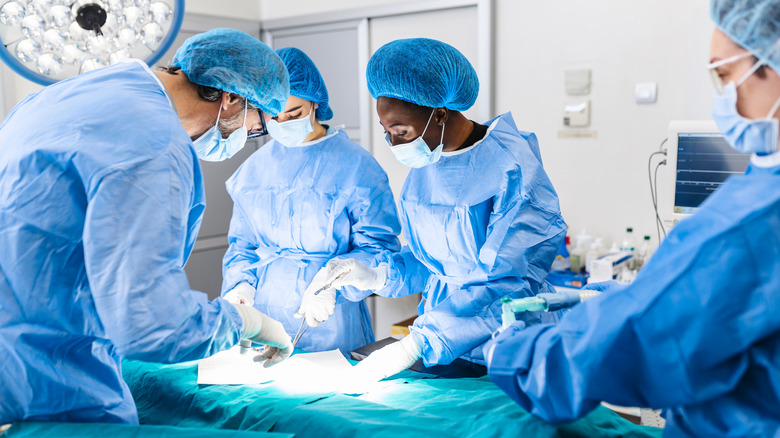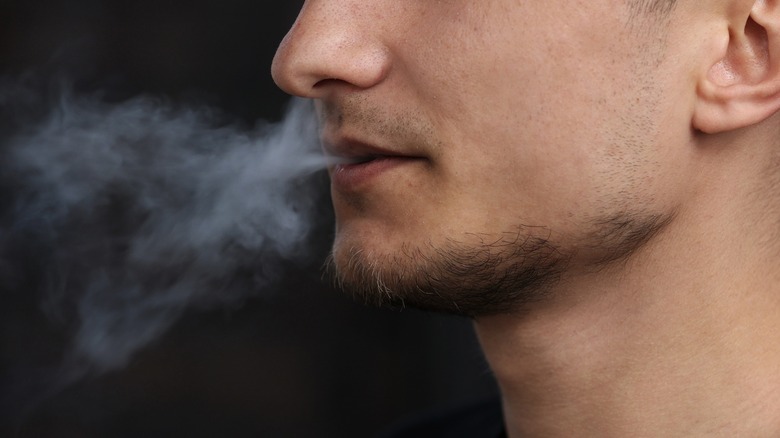Why You Should Never Smoke Before Surgery
Throughout your life, there may come a time when you or a loved one requires a surgical procedure to treat a medical condition. According to The American College of Surgeons, at least 15 million people in the United States undergo surgery within a given year, making the experience very common. During an operation, a trained surgeon will use tools to create an incision, opening an area of the body for reasons that vary from patient to patient (per Verywell Health). To prevent pain and discomfort during surgery, it is standard practice for a patient to receive anesthesia, as described in a 2012 review published in the Journal of Investigative Surgery.
Due to the invasiveness of surgery, there are some unhealthy habits that an individual should avoid performing beforehand, with one of them being smoking. The Centers for Disease Control and Prevention (CDC) reports that smoking cigarettes is a leading cause of preventable disease and is also a fairly common practice, with approximately 30.8 million American adults smoking cigarettes in 2020. Although it's well-known that regularly smoking cigarettes is detrimental to your health, experts at Cleveland Clinic warn that the action may have even more severe consequences if done before surgery.
Consequences of smoking before surgery
There are many worthwhile reasons to quit smoking, and before surgery might be the perfect time to do so. Truth Initiative shares that smokers can experience unique complications after surgery compared to those who don't smoke. For example, smokers who undergo orthopedic surgery may experience slower healing, and smokers who have spinal fusion surgeries have an increased risk of infections.
This is because smoking deprives the body's organs and tissues of oxygen, explains UPMC. Because oxygen helps the body mend wounds and injuries, it plays an essential role in the healing process. In addition, UPMC reports that smoking increases the chances of developing an infection after surgery because blood cells in the body become less capable of fighting against it.
Cigarette smoke carries a number of harmful chemicals to the body. Some of these chemicals include nicotine, arsenic, ammonia, carbon monoxide, and lead, as listed by the American Cancer Society. According to UPMC, some of these chemicals can contribute to inflammation and pain. This can make the postoperative period following a surgery especially painful for smokers. Furthermore, smoking can interfere with the process of anesthesia during surgery, and can even increase the risk of experiencing a heart attack afterward (per Cleveland Clinic).
Despite the consequences of smoking, many people find that it is easier said than done to quit. If you want to kick the habit, the Mayo Clinic recommends talking with your doctor, seeking help from a counselor, or joining a support group.


